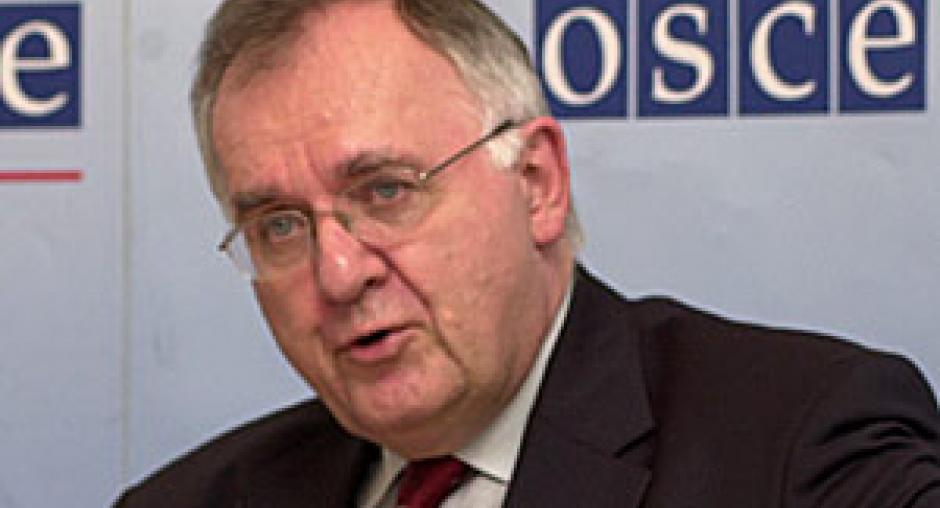Council of Europe Secretary General highlights human trafficking in OSCE address

VIENNA, 24 July 2003 - The Secretary General of the Council of Europe, Walter Schwimmer, today stressed the need for co-ordinated and decisive action by European institutions in consolidating democracy and the rule of law and in tackling challenges such as human trafficking, terrorism and migration.
"The ability to act together swiftly and decisively is the cornerstone for an effective partnership between European institutions in the newly emerged European landscape," he told the OSCE Permanent Council in Vienna. "It is also a prerequisite for conflict-prevention, peace building and the strengthening of democratic stability, which should be the leitmotif of all our activities."
Describing human trafficking as "intolerable affront to human dignity" and a threat to stability and security throughout Europe, Secretary General Schwimmer noted that a team of independent experts sent by the Council of Europe and the OSCE was at present in Montenegro, examining a prominent case there.
Co-operation between the two organizations had grown in recent years, based on their joint capacity to promote shared values and standards. In this respect, Secretary General Schwimmer mentioned the preparation by the Council of Europe of a European Convention against trafficking in human beings.
"This result-oriented co-operation is exemplary in many respects: working together in Sarajevo and Belgrade, in Baku, Yerevan and most recently in Tbilisi or even in Chechnya, co-ordinating action in combating terrorism and trafficking in human beings, on election issues and the judiciary," Mr Schwimmer said.
"Trafficking and organised crime are important issues for the Council of Europe, the EU, and the OSCE to tackle together," he added. "Money laundering and corruption are related problems which call for joint action."
Migration problems required pan-European and even broader solutions. "We need the non-European countries, where the migration chain begins, to join us around the table if we are to tackle migration properly."
Surveying developments across the region, the Secretary General said the situation in the Caucasus remained a major political concern. "2003 is a crucial election year in the three Caucasian Republics. The elections in Armenia, Azerbaijan and Georgia are essential tests of pluralist democratic development in the region."
The situation in Chechnya was another concern. The Secretary General said he hoped recent political initiatives by the Russian authorities would promote the restoration of the rule of law and a radical improvement in the human rights situation in the Republic, leading to an equitable political solution based on national reconciliation.
"Halting terrorist and suicide-acts on the one side, and halting the disappearance of people and curbing impunity on the other, are pre-conditions for mutual trust and reconciliation," Mr Schwimmer said.
The Secretary General welcomed the resumption of OSCE activities in Belarus and expressed the hope that this would contribute to the country's future integration into the community of European institutions.
"Unfortunately, most recent news from Belarus has been mostly negative, with some major opposition newspapers being suspended under non-democratic procedures and with the shutting down of the office of Russia's NTV," he said.
"The Council of Europe remains keen to see Belarus take its rightful place in Europe, as a country with properly functioning democratic institutions, and human rights protection, with full freedom of activity for civil society representatives."
